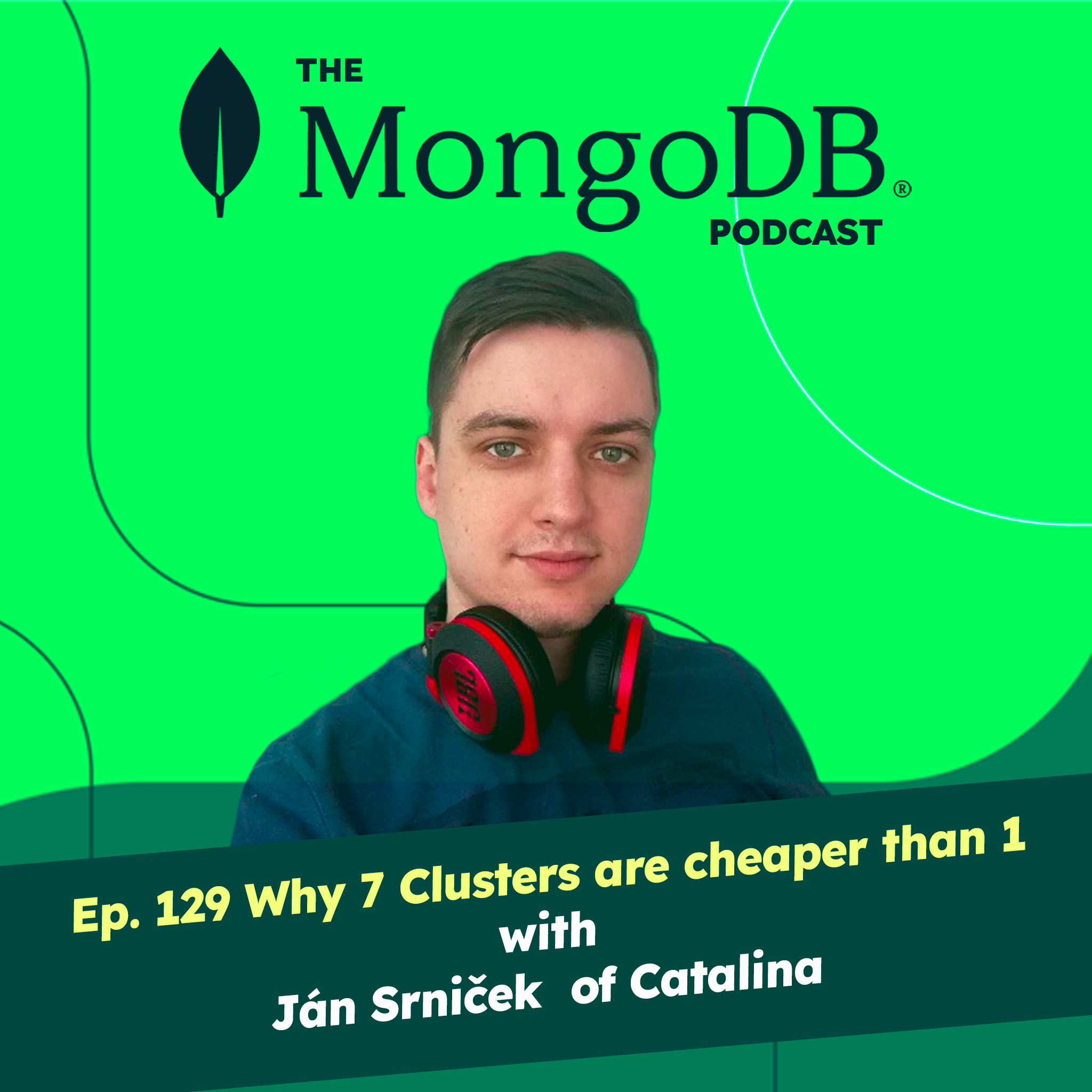
00:00
00:00
1x
- 0.5
- 1
- 1.25
- 1.5
- 1.75
- 2
Ep 129 Why 7 Clusters are cheaper than 1
This is a podcast episode titled, Ep 129 Why 7 Clusters are cheaper than 1. The summary for this episode is: <p>In this episode we’re talking about all things sizing - clusters, sharing, indexing and we’re joined by Jan Srniček of Global Logic. </p><p><br></p><p>We first came across Jan via his talk from MongoDB world, where he spoke about the journey he and his team took in understanding how to reduce usage & cost - all the while keeping performance and responsiveness high. </p><p><br></p><p>In this episode, Jan talks about his journey with MongoDB, moving from Cosmo DB to MongoDB. Initially they stood up their own on-prem MongoDB database to learn more, but then soon realised that moving to Atlas was key, particularly as they could host on Azure.</p><p><br></p><p>For Global Logic's client, Catalina, Jan manages everything from small clusters with a few hundred records all the way up to a system of 7 clusters with over 5Billion data records!So he know’s all about scaling - and teaches us some lessons he’s learnt along the way. He illustrates that if you only scale one large cluster (e.g with Autoscaling on), your database never gets a break! However, if you have smaller clusters, all autoscaling, along with predictable traffic patterns visualised by using Atlas metrics UI and performance advisor, you can analyse usage and re-organise structure appropriately.</p><p><br></p><p>Ultimately, understanding the workloads in your application and dividing those across clusters all working together is key to application performance.</p><p><br></p><p>Ján Srniček - https://www.linkedin.com/in/j%C3%A1n-srni%C4%8Dek-4a3b826b</p><p>Global Logic - https://www.globallogic.com/</p><p>Catalina - https://www.catalina.com/ </p><p>MongoDB - https://www.mongodb.com/ </p><p><br></p><p><br></p>
Guests
Subscribe
Today's Host

Shane McAllister
|Lead, Developer Advocacy
Today's Guest

Ján Srniček
|Solution Design Architect